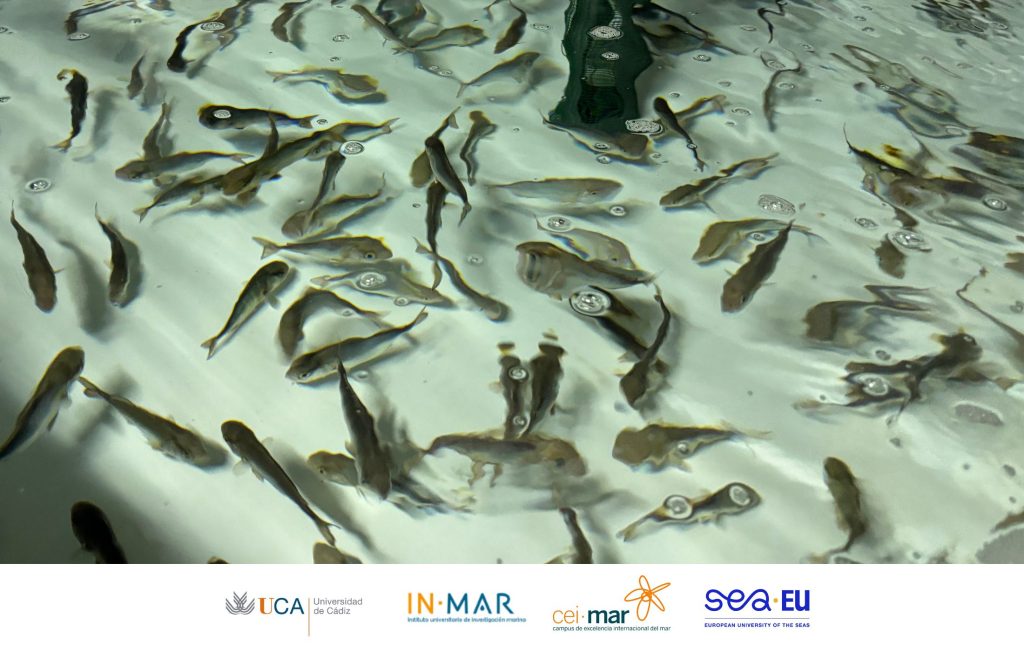Dos nuevos artículos profundizan en la fisiología del pez limón y en la mejora de la alimentación sostenible de la mano del investigador Juan Antonio Martos Sitcha 13 January 2025
El Dr. Juan Antonio Martos-Sitcha, investigador del Instituto Universitario de Investigación Marina (INMAR), lidera dos importantes publicaciones recientes en la revista Aquaculture. Estos estudios, desarrollados junto a su equipo, abordan avances significativos en el cultivo y la alimentación sostenible del pez limón (Seriola dumerili).
El impacto de la temperatura en el crecimiento y bienestar del pez limón
En el primero de los estudios, liderado por el Dr. Martos-Sitcha y su equipo, se analiza cómo la temperatura influye en el metabolismo, la digestión y el crecimiento de juveniles de pez limón. El trabajo concluye que las temperaturas entre 22 y 26 °C son óptimas para maximizar el crecimiento y el bienestar de la especie, mientras que los 18 °C pueden comprometer su desarrollo debido al estrés oxidativo y una menor eficiencia alimenticia. Este hallazgo es crucial para optimizar las condiciones de cultivo en un contexto de cambio climático.
El artículo completo está disponible aquí: Digestive and metabolic consequences of on-growing greater amberjack juveniles at different temperatures. In-vivo and ex-vivo assessment.
Alimentación sostenible mediante proteínas vegetales y aditivos de algas
En el segundo estudio, también encabezado por el Dr. Martos-Sitcha, se evalúan los beneficios del uso de proteínas vegetales tratadas enzimáticamente junto con aditivos nutracéuticos basados en algas. Los resultados demuestran que estas técnicas permiten sustituir parcialmente la harina de pescado en las dietas, mejorando el crecimiento y el bienestar de los peces y contribuyendo así a una acuicultura más sostenible.
Consulta el artículo aquí: Enzymatic treatment of plant proteins in combination with algae-based nutraceutical inclusion in aquafeeds improves growth performance and physiological traits in the greater amberjack.
Para más información sobre esta publicación, puedes contactar con Juan Antonio Martos Sitcha en: juanantonio.sitcha@uca.es


